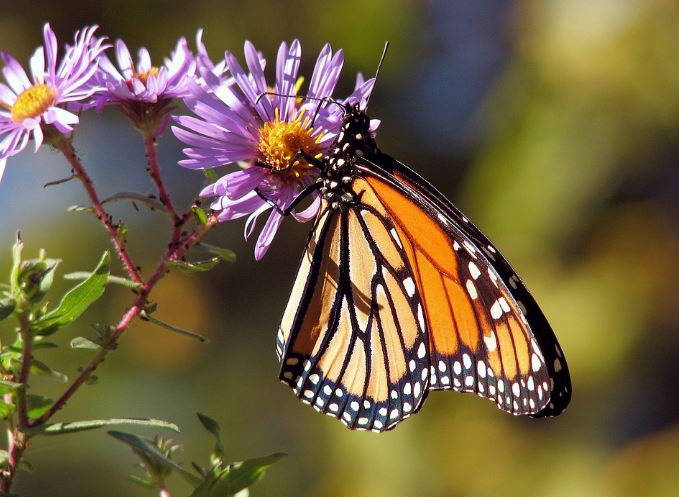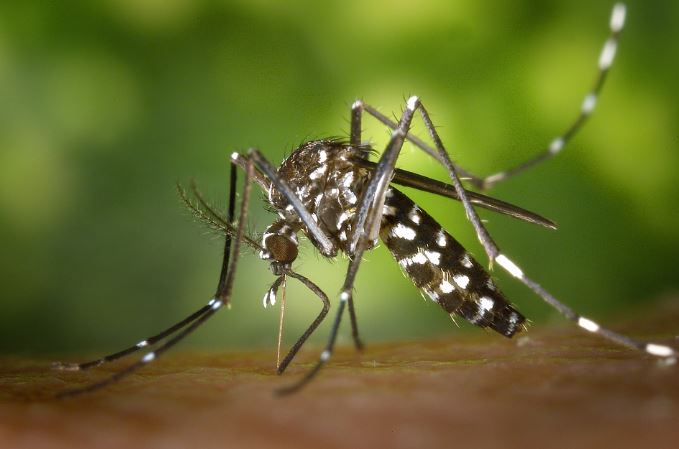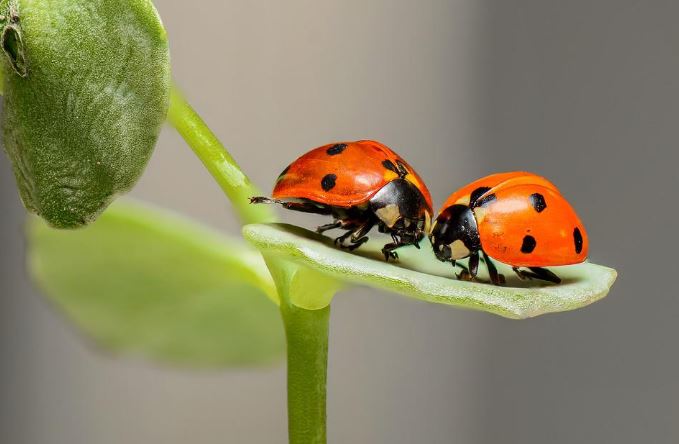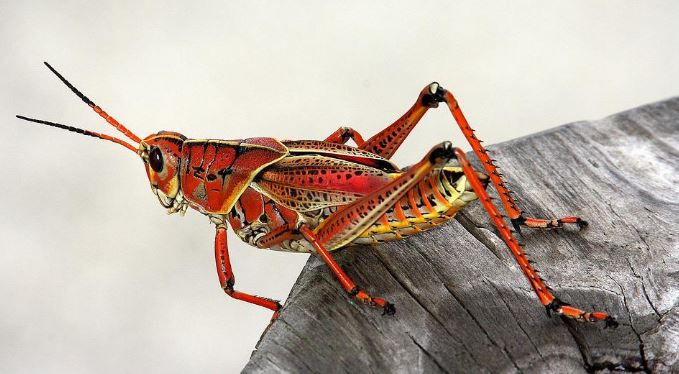List of 50+ Insects in German
Insects are everywhere, be it within your house, the air, the ground, under the soil, the sea, over the water and even in one’s skin!!!! Yeah you heard me right. The estimated number of insect species in the world is about 5.5 million and even in that only 1 million insect species are named. This means that roughly 80% of insects have yet to be discovered. How can you go a single day without hearing the buzz of a bee or a fly or without seeing a fruit fly or a worm? Seeing as that they are everywhere, it becomes of great importance that you learn the vocabulary list of insects in German.

In order to improve your German vocabulary, you must learn the list of insects in German. And this is exactly what we are going to do here!!!
Topics
- How to say insects in German
- Butterfly in German
- Common insects in German
- All kinds of Bugs
- Stinging insects
- Pet insects in German
- Verbs related to insects
- German Common phrases
- Parts of an insect in German
Ho to say insects in German?

- WORD: The German translation for “The insect” is “das Insekt”
- EXAMPLE SENTENCE: “Cockroaches are insects.” à Kakerlaken sind Insekten.
- WORD: The German translation for “The worm” is “der Wurm”
- EXAMPLE SENTENCE: “How many worms do you want?” à Wie viele Würmer willst du?
Learn about the butterfly in German.
When you think of a beautiful insect, what do you see? Of course you think of the beautiful butterfly! The butterfly is very colourful, pretty and is a sight to behold. When we see something magical in movies, there are always butterflies flying about with colours galore. Would it not be perfectly fitting if we learnt about the butterfly in German before we step into other insects (pun intended of course!!!)? Let us learn about the butterfly in German with example sentences.

- ENGLISH: What is the translation for “butterfly life cycle” in German?
- GERMAN: German translation for “Life cycle of a butterfly” is “Schmetterling Lebenszyklus”
- ENGLISH: What is the translation for “Monarch butterfly” in German?
- GERMAN: German translation for “Monarch Butterfly” is “Der Monarchfalter”
| Butterfly in English | Translation | Example sentence in English | Sentences for German butterfly |
| The Butterfly | Der Schmetterling | There are many butterflies in the garden. | Es gibt viele Schmetterlinge im Garten. |
| The Caterpillar | Die Raupe | The Caterpillar ate three leaves. | Die Raupe fraß drei Blätter. |
| The egg | Das Ei | There are millions of butterfly eggs in the forest. | Es gibt Millionen von Schmetterlingseiern im Wald. |
| Chrysalis | Schmetterlingspuppe | We learnt about chrysalis of a butterfly today. | Wir haben heute von einer Schmetterlingspuppe erfahren. |
| Metamorphosis | Metamorphose | In the life cycle of a butterfly, metamorphosis is a very important stage. | Im Lebenszyklus eines Schmetterlings ist die Metamorphose ein sehr wichtiges Stadium. |
| The Cocoon | Der Kokon | The gardener took care of the silk cocoons. | Der Gärtner kümmerte sich um die Seidenkokons. |
Common insects in German?
While there are billions of insects in the world, when you say the word insect in German or English, you only think of a select few which we see every day. Some insects are more common and commonly used in conversations than other insects. So it is necessary that you learn the vocabulary list of these common insects in German. This will help you hold a conversation easily. Let us learn about the different common insects in German with example sentences.

| English | Translation | Example sentence | Sentences for German |
| The Cockroach | Die Kakerlake | The cockroach is ten days old. | Die Kakerlake ist zehn Tage alt. |
| The mosquito | der Moskito / die Mücke | There are so many mosquitoes in India. | Es gibt so viele Mücken in Indien. |
| The Moth | die Motte | Moths have a bad smell. | Motten haben einen schlechten Geruch. |
| The Dragonfly | die Libelle | I like dragonflies | Ich mag Libellen |
| The Firefly | das Glühwürmchen | The firefly is pretty. | Das Glühwürmchen ist hübsch. |
| The mayfly | die Eintagsfliege | The mayfly lives for only twenty four hours. | Die Eintagsfliege lebt nur vierundzwanzig Stunden. |
| The Fruit fly | die Fruchtfliege | Fruit flies love mangoes. | Fruchtfliegen lieben Mangos. |
| The Gnat | die Mücke | The gnat was very arrogant. | Die Mücke war sehr arrogant. |
| The Spider | die Spinne | Spiders have eight legs. | Spinnen haben acht Beine. |
| The worm | der Wurm | The worm lives in the garden | Der Wurm lebt im Garten |
Common bugs in German
Ok I’m going to be upfront with you. If there is one thing I hate in this beautiful world, its bugs and creepy crawlies!!! When you say the word bugs in German or in English, you can see me cringe!! But that gives me more the reason to memorize the wordlist so that I can explain to people that I hate them and I like to avoid them. As with insects, a few bugs are far more common across the world. So it is necessary that you learn the vocabulary list of these common bugs in German. Along with the list of insects in German, Let us learn the different bugs in German with example sentences.

| English | Translation | Example in English | German Common Bugs |
| The bug | der Käfer | The scientist caught two bugs. | Der Wissenschaftler hat zwei Käfer gefangen. |
| The ladybug | der Marienkäfer | Ladybugs are very pretty. | Marienkäfer sind sehr hübsch. |
| The bedbug | die Bettwanze | I caught the bedbug. | Ich habe die Bettwanze gefangen. |
| The lice | die Läuse | This medicine kills lice. | Dieses Medikament tötet Läuse. |
| The beetle | der Käfer | I can eat the beetle. | Ich kann den Käfer essen. |
| The dung beetle | der Mistkäfer | The dung beetle is very strong. | Der Mistkäfer ist sehr stark. |
| The flea | der Floh | Fleas can jump. | Flöhe können springen. |
| The tick | die Zecke | Stay away from ticks and fleas. | Halten Sie sich von Zecken und Flöhen fern. |
Stinging insects in German
You put your hand on a flower and all of a sudden there is a super sharp pain in your finger!!!! You scream and throw down the flower. What on earth was that? IT’S A BEE!!!! DAMN YOU GIT STUNG BY A BEE!!! You have to say this to your doctor in German. How do you do that without knowing the list of insects in German which sting? Let us learn the different stinging insects in German with example sentences.
| English | German | Example sentence | Sentences for German |
| The bee | Die Biene | The bee sat on the flower. | Die Biene saß auf der Blume. |
| The wasp | Die Wespe | The wasp flew away. | Die Wespe flog davon. |
| The Hornet | Die Hornisse | Hornets and wasps are enemies. | Hornissen und Wespen sind Feinde. |
| The bumblebee | Die Hummel | The beekeeper loves his bumblebees | Der Imker liebt seine Hummeln |
| The ant | Die Ameise | There are two anthills and a billion ants in my garden. | In meinem Garten gibt es zwei Ameisenhaufen und eine Milliarde Ameisen. |
Pet insects in German
Do you know that it is very common across the world for people to have insects as pets? Children love having insects as pets as they are hardy and easy to maintain. They do not require constant care and can take care of themselves. Let us learn the different insects which can be kept as pets in German with example sentences.

| English | German | Example sentence | Sentences for German |
| The praying mantis | die Gottesanbeterin | The young girl has a pet praying mantis. | Das junge Mädchen hat eine Gottesanbeterin als Haustier. |
| The stick insect | die Stabheuschrecke | Stick insects are very weird | Stabheuschrecken sind sehr seltsam |
| The leaf insect | das Blattinsekt | Leaf insects are very cute. | Blattinsekten sind sehr niedlich. |
| The scorpion | der Skorpion | This scorpion is poisonous. | Dieser Skorpion ist giftig. |
| The Tarantula | die Vogelspinne | I have a tarantula. | Ich habe Angst vor Vogelspinnen und Skorpionen. |
Hopping insects in German
Have you ever looked at a grasshopper? It looks like a small machine. It can jump up an incredible height, can fly and looks freaky as hell!!! I HATE THEM but my brother loves them!!!! Let us learn the different hopping insects in German with example sentences.

| Hopping Insects in English | Translation: Hopping Insects in German |
| The grasshopper | der Grashüpfer |
| The locust | die Heuschrecke |
| The mantis | die Gottesanbeterin |
| The cricket | die Grille |
| The cicada | die Zikade |
Insect related Verbs in German
Now that we have learnt about so many insects in German, let us now focus on some common German Verbs which will help us form sentences using these insects. For example, you need to say that the caterpillar crawls but the butterfly flies. You need to say that the bee lives in a hive while an ant lives in an anthill. You need to say that a cockroach has antennae while a wasp has wings. So basically you need to know a few verbs and nouns related to acts which the insects perform in German. In this section let us learn about a few verbs related to insects in German
| English | Translation | Example sentence for English | Sentences for German |
| To sting | Stechen | The bee stings the boy. | Die Biene sticht den Jungen. |
| To bite | Beißen | The Ant bites me and it is painful. | Die Ameise beißt mich und es tut weh. |
| To fly | Fliegen | The butterfly flew away. | Der Schmetterling flog davon. |
| To crawl | Kriechen | The soldier is crawling. | Der Soldat kriecht. |
| To walk | Gehen | The girl walks fast. | Das Mädchen geht schnell. |
| To run | Laufen | The athlete runs from Germany to Austria. | Der Sportler läuft von Deutschland nach Österreich. |
| To jump | Springen | A grasshopper can jump very high. | Eine Heuschrecke kann sehr hoch springen. |
| To pollinate | Zu bestäuben | The bee pollinates the flowers. | Die Biene bestäubt die Blüten. |
Parts of an insect in German
With the German insect related verbs done, let us proceed with the parts of an insect in German and other nouns related to insects in German

| Insect words in English | Translation: Common Insect words in German | Example sentence for Common Insects words in English | Sentences for Common German words related to Insects |
| The stinger | der Stachel | The bee has a powerful stinger. | Die Biene hat einen kräftigen Stachel. |
| The antennae | die Antennen | Cockroaches have long antennae. | Kakerlaken haben lange Antennen. |
| The wings | die Flügel | I hate insects which have wings. | Ich hasse Insekten, die Flügel haben. |
| The mandible | der Unterkiefer | The insect’s mandible is quite weak. | Der Unterkiefer des Insekts ist ziemlich schwach. |
| The thorax | der Brustkorb | Every insect has a thorax. | Jedes Insekt hat einen Brustkorb. |
| The abdomen | der Bauch | A worm does not have an abdomen. | Ein Wurm hat keinen Bauch. |
| The leg | das Bein | A centipede has a hundred legs. | Ein Tausendfüßler hat hundert Beine. |
| The anthill | der Ameisenhaufen | There is an anthill near our house. | In der Nähe unseres Hauses befindet sich ein Ameisenhaufen. |
| The nest | das Nest | The wasp built a nest. | Die Wespe hat ein Nest gebaut. |
| The hive | der Bienenstock | The beekeeper has many beehives. | Der Imker hat viele Bienenstöcke. |
| The nectar | der Nektar | Flowers produce nectar. | Blumen produzieren Nektar. |
Insect related phrases in German
I have explained all over this post about how I hate insects and how much I am terrified of them. So what do I say in German when I see one? Let us learn the different common insect related phrases in German with example sentences.
| Insect related Phrases in English | Translation: Insect Phrases in German |
| I am afraid of insects. | Ich habe Angst vor Insekten. |
| Does it sting? | Brennt es? |
| Insects are creepy. | Insekten sind unheimlich. |
| It has many feet. | Es hat viele Füße. |
| What type of insect is that? | Was ist das für ein Insekt? |
| The mosquito bit me. | Die Mücke hat mich gebissen. |
| I am allergic to bee stings. | Ich bin allergisch gegen Bienenstiche. |
| I am terrified of insects. | Ich habe Angst vor Insekten. |
| Can it jump? | Kann es springen? |
| Can it fly? | Kann es fliegen? |
| It looks so disgusting. | Es sieht so widerlich aus. |
| What does it eat? | Was isst es? |
| Is it poisonous? | Ist es giftig? |
Conclusion
We have learnt a lot about the most common insects in German and also about what they do, where they live, the butterfly life cycle in German and also many more phrases. Hope you had fun learning.



[…] Insects in German […]